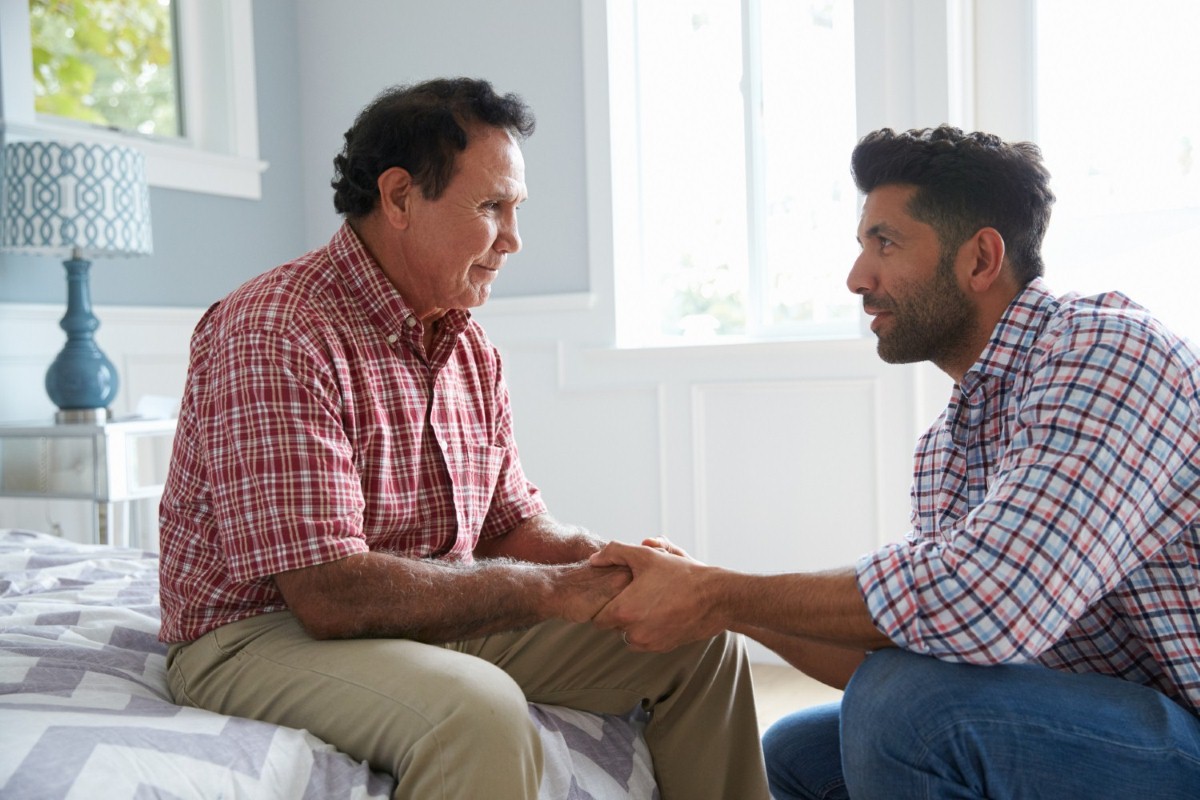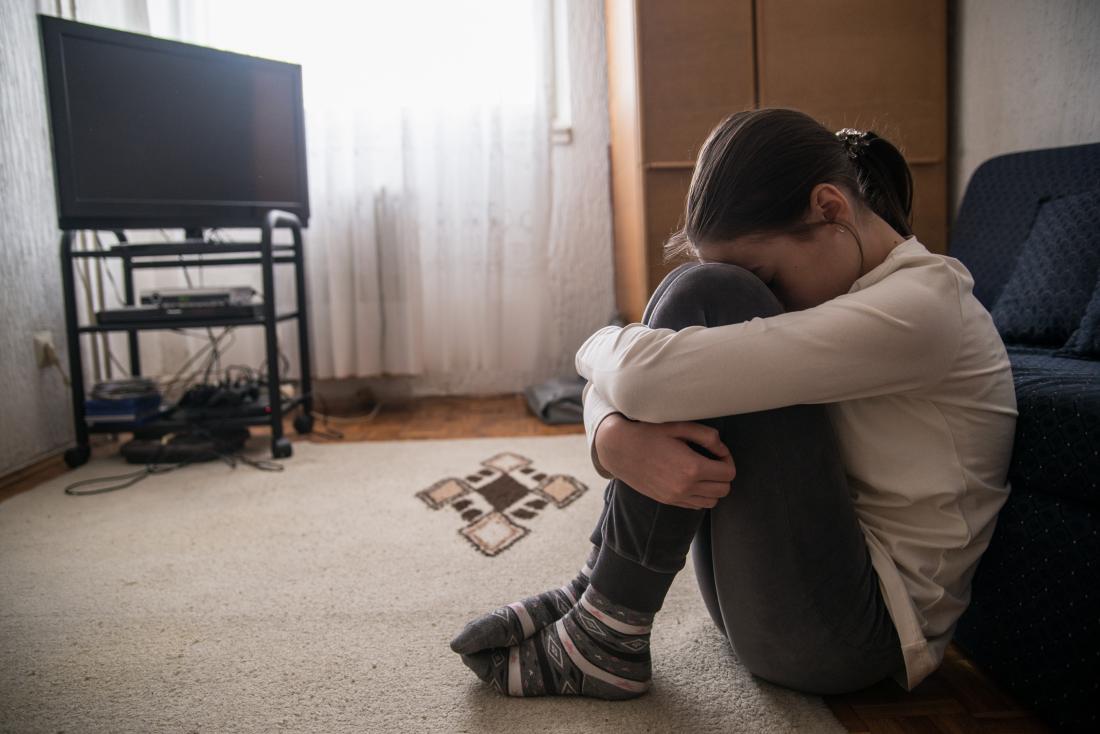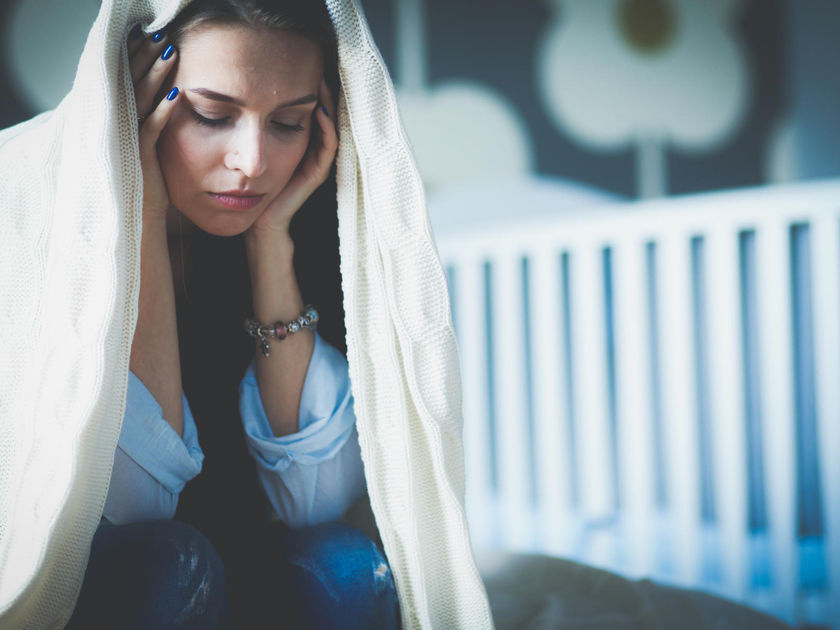Moms who are depressed often suffer in silence — but this common illness can also take a heavy toll on their children. That’s why getting treated is more important than ever.
Missy Nicholson, of Grafton, Massachusetts, had struggled with depression on and off since age 10, but it wasn’t until she became a mother that she realized she wasn’t the only one suffering because of her illness. Three years ago, when Nicholson was pregnant with her second child, she sank into a depression so severe that she spent most of each day in bed. “I didn’t even get up to make my daughter breakfast or see her off to school,” Nicholson recalls. Her daughter, Katherine, then 8, suddenly developed a phobia about going to school.
A social worker linked Katherine’s newfound separation anxiety to her mother’s depression: “She was afraid to leave me alone,” Nicholson explains. When Nicholson started making the effort to pull herself together in the morning and restore some structure to her daughter’s day, Katherine’s phobia disappeared. But recognizing how profoundly her own emotional state was affecting Katherine made Nicholson feel even worse. Indeed, depressed mothers bear a double burden: “You feel awful to begin with,” Nicholson says, “and then you see how your disease is having this terrible impact on your kids.”
Millions of children are caught in the web of maternal depression. As many as one in four women will suffer from this biological illness at some point in her lifetime, including about 10 percent of new mothers who develop postpartum depression (PPD). Not only is a child with a depressed parent two to four times more likely to develop depression himself before adulthood, but extensive research has shown that a mother’s depression, especially when untreated, can interfere with her child’s social, emotional, and cognitive development.
If you think you might be depressed, reading this article may be difficult, but you owe it to yourself and your children to get the help you need. “Depressed parents often worry that they’ve irrevocably damaged their children — but they haven’t,” says William Beardslee, M.D., a professor of child psychiatry at Harvard Medical School and author of Out of the Darkened Room: Protecting the Child and Strengthening the Family When a Parent Is Depressed. “Our research has shown that kids are incredibly resilient and that there is a lot that parents can do to help their children be strong, healthy, and happy.”
Helpless and Hopeless
People who’ve been depressed say that it’s almost impossible to explain what it feels like. “You become unbearably miserable, lethargic, and incapable of any joy or enthusiasm,” says Anne Sheffield, author of Sorrow’s Web: Overcoming the Legacy of Maternal Depression. Depressed moms often hide the way they’re feeling because they’re ashamed that they haven’t bonded with their babies and worry that their children might even be taken away from them. New fathers, who are often overwhelmed themselves, may not pick up on their wives’ despair.
In fact, as many as two thirds of all depressed women suffer in silence. Perhaps this is because of the stigma attached to mental illness — or because mothers are so focused on their families that they disregard their own well-being, says Peter Jensen, M.D., director of the Center for the Advancement of Children’s Health at Columbia University College of Physicians and Surgeons, in New York City. Even moms who recognize their symptoms often assume they’re just stressed and will eventually snap out of it — or they try to tough it out on their own for fear of being considered weak or crazy. However, research has found that the longer your symptoms go untreated, the more likely you’ll be to suffer from future episodes of depression. Getting treatment is as essential for depression as it is for diabetes, because moderate to severe depression rarely goes away on its own.
How Kids Are Affected
It can be a tremendous challenge for depressed moms to provide many of the things that children need most — affection, patience, playfulness, and consistent limit-setting. Not surprisingly, clinically depressed moms are self-critical and indecisive, so that every choice — from what to make for dinner to how warmly to dress the baby — can seem overwhelming. But even mild symptoms of depression can affect kids. Children whose mothers have a chronic low-level form of depression known as dysthymia are at risk simply because of the duration of their mom’s illness.
The impact of a mother’s depression differs depending on how old her child is, and what his needs and challenges are at that age. Here’s what experts now know.
Babies
Bonding is particularly difficult for moms with PPD. They’re less likely to play with their babies, make eye contact, or speak in an engaging voice. As a result, babies can become anxious and fearful. “Infants may be withdrawn and whiny, and may stop reacting to people at all,” says psychiatrist David Fassler, M.D., author of “Help Me, I’m Sad”: Recognizing, Treating, and Preventing Childhood and Adolescent Depression. Recent research has also found that breastfed infants whose mothers have PPD for more than two months gain weight more slowly than babies whose moms aren’t depressed.
“I loved my son in the sense that I felt obligated to take care of him,” recalls Holly Herring Shuman, of San Diego, “but I didn’t have a lot of feeling for him — and I was sure he sensed it.” Fortunately, with the help of antidepressants, Shuman overcame her depression by her son’s first birthday. Now 5, he seems unaffected by the year she struggled with PPD. “We’re very close,” she says.
Toddlers and Preschoolers
A young child’s brain is shaped by the interactions he has with adults who are close to him. It takes a lot of energy and ingenuity to care for a child this age, but depressed moms are more likely to feel drained, irritable, and easily frustrated. As a result, their children have trouble regulating their own moods, cooperating with requests, and mastering problem-solving skills, according to a large study by the National Institute of Child Health and Human Development. Three-year-olds with depressed mothers are also more likely to perform poorly on measures of language skills and school readiness than children with mothers who aren’t depressed.
School-age Children
Kids this age are often forced to become mini adults, taking over such duties as caring for younger siblings or making meals, because their mother is too depressed to function, Dr. Fassler says. “They may seem very mature on the surface but can actually be pretty vulnerable underneath.” Children can suffer in school because their moms are less likely to motivate them academically or to help them coordinate social plans. Depressed mothers tend to be more critical, and as a result, kids this age often have more negative images of themselves, according to research at UCLA. They’re also more likely to have behavioral problems in school, because their moms avoid dealing with discipline at home.
Protecting Your Children
“With the right support, depressed moms can still be excellent parents,” Dr. Beardslee says. Here are essential steps to take.
Get professional help. The best thing you can do for your family is to seek treatment — antidepressant medication, therapy, or both. There is a wide variety of drugs available now, and even if you’ve tried one before and it hasn’t helped or you had unpleasant side effects, a different brand or dose will most likely work.
Count on your spouse (and others). “When Dad is actively involved, it reduces the risk that a child will develop low self-esteem or have problems in school,” says David J. Diamond, Ph.D., a clinical psychologist in San Diego. Missy Nicholson and Holly Shuman were both fortunate to have partners — as well as parents and friends — who took on the lion’s share of parenting responsibilities during their bouts with depression. For mothers with PPD, hiring a baby-sitter and other household help, if you’re able, can be crucial.
Discuss it with your children. Children are often left out of any discussion of depression, and yet they’re forced to live through all the disruptions caused by it, Dr. Beardslee points out. It’s crucial that a child understands that he is not to blame. You might say, “I’ve been crying and yelling a lot, but it isn’t your fault. It’s because I have a sickness, but I’m getting treatment for it, and I’m going to get better.” There’s no need to use the word depression with a child younger than 7 or 8. With older children, you can compare depression to a medical illness they’re more familiar with. Whatever your child’s age, let him know he should feel free to ask questions.
Let kids stick to regular activities. When a child can continue her extracurricular activities and playdates, she’ll feel as if she still has some control over her life. If necessary, ask friends or relatives to help with drop-offs or pickups. “As parents see that their kids can still have a normal childhood and a wonderful future, they regain their confidence,” Dr. Beardslee says, “and it gives them hope for recovery.”
Depression Red Flags
At least half of all depressed adults first had symptoms during childhood or adolescence, so parents need to be on the alert for symptoms in their kids too. The following are signs of both adult and childhood depression.
- Prolonged sadness, lasting for more than two weeks
- Frequent, easy tearfulness
- Changes in sleep or appetite
- Loss of energy
- Inability to take pleasure in former interests
- Social withdrawal
- Increased irritability, agitation, worry, or anxiety
- Thoughts of death or suicide
Additional signs in children:
- Frequent headaches or stomachaches
- Chronic boredom or apathy
- Chronic self-criticism
- Extreme sensitivity to rejection or failure
- Talk of or efforts to run away from home





